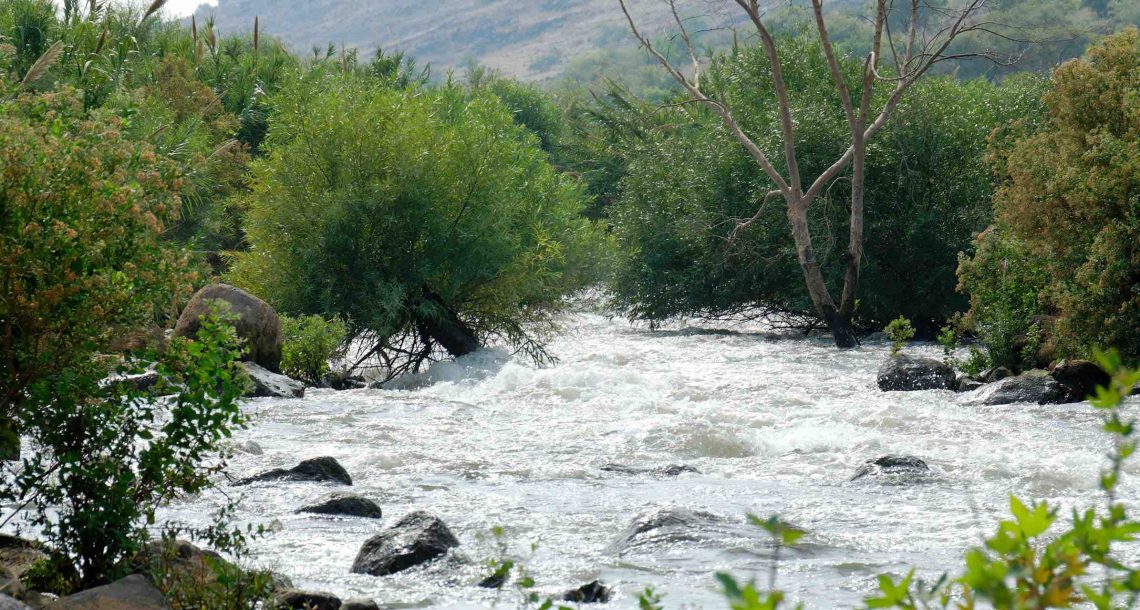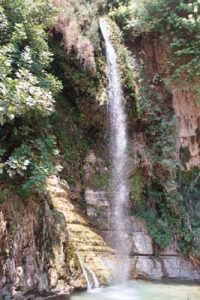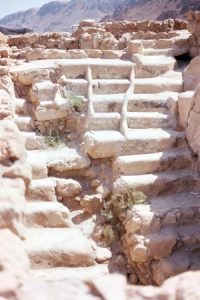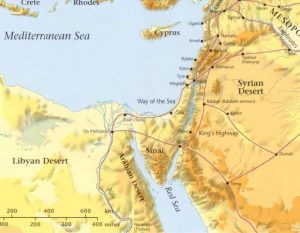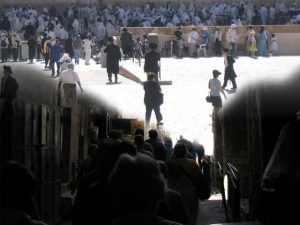by Lois Tverberg
Every living creature which swarms in every place where the river goes, will live. Ezekiel 47:9
One of the most beautiful prophecies about living water is in Ezekiel 47:1-12. The prophet Ezekiel is at the temple, and sees a little trickle of water flowing out from under the altar. The water flows out of the temple down the south stairs.
As it flows, this paradoxical river does a strange thing – it grows wider and deeper until finally it becomes a stream so great that it can’t be crossed. Moreover, this little stream from the temple is flowing southeast out of Jerusalem toward the Dead Sea, twelve miles away. The area near the Dead Sea is a salt wasteland where nothing can live. But this stream has a marvelous effect. Trees grow on either side, and the waters of the Dead Sea suddenly teem with life.
It is beautiful to see how the image in Ezekiel 47 describes the outpouring of the Spirit that occurred at Pentecost. The Living Water of the Spirit first fell on the people in the temple as they were worshipping there, as if the Spirit started trickling out of the sanctuary to that little “puddle” of believers. Interestingly, when Peter preached to the people at Pentecost, he was probably standing on the south stairs, where the water in Ezekiel’s vision flowed. Also on that south stairs are the mikvehs (ceremonial baths), where 3000 people that day were baptized in living water. They have been excavated and are visible even today!
The trickle of God’s Spirit became ankle deep as the first believers shared the gospel and many in the city believed, and then knee deep as they carried the gospel to the surrounding countries. Instead of running out of energy as it flowed, the river of God’s Spirit got deeper and wider as it flowed! And its ultimate destination is that of the most desolate of wastelands, full of the poisonous water of the Dead Sea. This is the dark reality of a world devoid of a true knowledge of God. Anywhere it touches it gives new life where there was only death before.

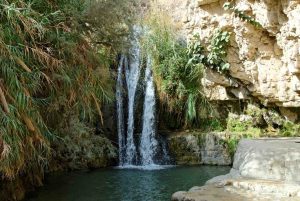 In this story we find the Israelites “grumbling” to Moses and Aaron about their present circumstances. The Hebrew meaning behind this translation conveys a much stronger picture, that of a riotous mob wanting to kill their leaders. I find myself quickly judging the Israelites, thinking that since they had just been brought out of the land of slavery, how could they be complaining already? After all, they had seen the mighty hand of God on the night of Passover, they had experienced the parting of the waters of the Red Sea, manna appeared with the dawn, quail fell from the sky, and they had benefited from many other miracles. How could they be so ungrateful as to be complaining about thirst?
In this story we find the Israelites “grumbling” to Moses and Aaron about their present circumstances. The Hebrew meaning behind this translation conveys a much stronger picture, that of a riotous mob wanting to kill their leaders. I find myself quickly judging the Israelites, thinking that since they had just been brought out of the land of slavery, how could they be complaining already? After all, they had seen the mighty hand of God on the night of Passover, they had experienced the parting of the waters of the Red Sea, manna appeared with the dawn, quail fell from the sky, and they had benefited from many other miracles. How could they be so ungrateful as to be complaining about thirst?